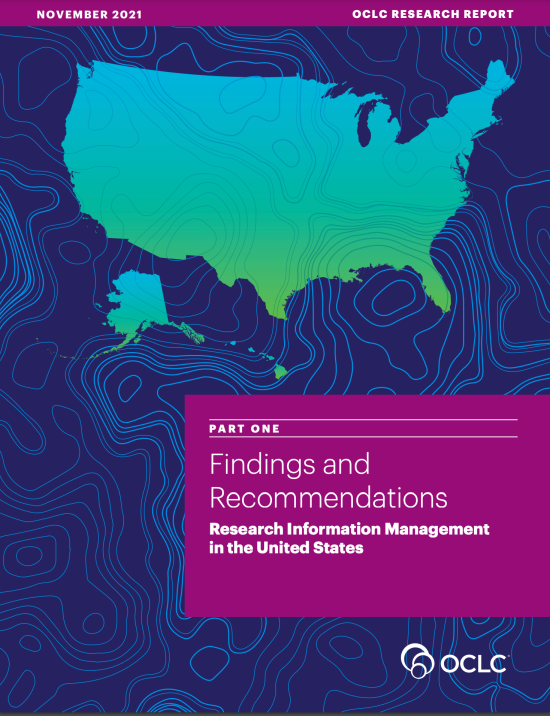Understanding Research Information Management in the United States
Rebecca Bryant and Jan Fransen
Research information management (RIM) is a rapidly growing area of investment in US research universities. But what exactly is a RIM system? Is it the same thing as a CRIS system, research networking system (RNS), or faculty activity reporting (FAR) system? While RIM practices are mature in Europe and other locales in support of nationalized reporting requirements, RIM practices at US research universities have taken a different — and characteristically decentralized — course.
The recent OCLC Research report series Research Information Management in the United States demystifies this confusing landscape by providing a first-of-its-kind documentation of RIM practices at US research institutions. Through a case study examination of RIM practices at five research universities (including UCLA and the University of California system), it provides insights into the development of RIM practices in the US, articulates six discrete use cases and their distinct stakeholders, offers a unifying definition of RIM practice, and emphasizes the essential role for libraries in RIM practice.
Online participants must have a Zoom account and be logged in. Sign up for your free account here. If this is your first time using Zoom, please allow a few extra minutes to download and install the browser plugin or mobile app.
Rebecca Bryant, Ph.D., serves as senior program officer with the OCLC Research Library Partnership, conducting research and developing programming to support 21st century libraries and their parent institutions, particularly on topics related to scholarly communications and research impact. She previously worked as a university administrator and as community director at ORCID.
Jan Fransen is service lead for research information management systems at the University of Minnesota Libraries, where she works with the libraries and with campus partners to provide library systems that save researchers’, students’, and administrators’ time and to improve access to the resources they need.













